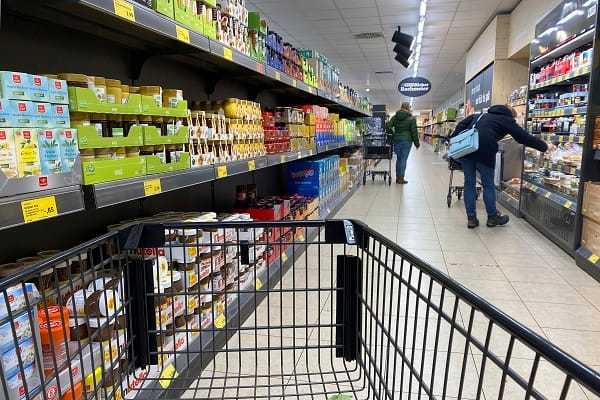The Bank of England has warned that food prices will likely remain high for most of the year and could fall by the end of the year “perhaps around 10% or slightly lower.”
There is a “quite wide agreement” that food inflation has peaked and the cost of inflation that food producers experienced has fallen.
For some food producers inflation has remained higher than usual and could take time before they see lower pressures.
Which? head of food policy Sue Davies said, “It’s worrying that food prices are expected to remain high for the rest of the year as people continue to struggle.
“This means they will continue to put huge pressure on millions of families and people on low incomes who have struggled to cope with rising costs month after month.
“Supermarkets can take meaningful action to help customers who rely on more expensive convenience stores by ensuring they stock a range of budget products that support a healthy diet, as Which? research has found these items are rarely, if ever, on sale in smaller branches.
“The Competition and Markets Authority recently agreed with Which? that grocery pricing can be unclear, so supermarkets must also act immediately to make it easier for shoppers to compare prices, while the Government must fulfil its promise to close the loopholes that are making it too easy for supermarkets to confuse shoppers.”
Barret Kupelian, senior economist at PwC, said, “The Bank’s decision today to raise its policy rate by 25 basis points reflects the good, the bad and the ugly of tightening monetary policy.
“The more positive news is that the inflation, which is currently running at 7.9%, is expected to fall further. The Bank’s conditional forecasts show that they are due to fall to 5% by the end of the year and that it will hit the Bank’s target by the beginning of 2025.
“Monetary policy is working.
“The bad news is that even though food inflation is expected to moderate, food prices will remain high and not decrease.
“This means that the era of cheap food has probably come to an end in the UK. It also highlights the need to build resilience in the UK economy by doing more to bolster the domestic food-growing industry.”






Leave a Comment